
Homemade Round Leaven Bread. Stock Photo Image of white, leaven
A levain (or leaven) is the active ingredient which causes fermentation in a dough or batter. When the levain is yeast it reacts with simple sugars to create carbon dioxide gas and water through aerobic respiration. It's carbon dioxide that gets trapped as a gas in the gluten structure and makes the bread rise.
Week 19 Leavened bread Struan r/52weeksofbaking
In a large mixing bowl, combine the flour, water, salt, and yeast. Use a wooden spoon or your hands to mix the ingredients together until a shaggy dough forms. Once the dough comes together, turn it out onto a floured surface and begin kneading. Kneading is the process of working the dough with your hands to develop the gluten and create a.

The Leaven For Bread Is Active. Starter Sourdough Fermented Mixture Of
What is a leaven? A leaven releases gas into another product, which in the case of leavened bread is captured in the gluten structure, forcing it to rise. Gas is either created through a chemical reaction or captured via a mechanical intervention such as whisking or creaming. The type of gas is usually oxygen or carbon dioxide but is not.

Wheat Leavened Bread Bread & Roses
Baking soda (sodium bicarbonate) is a chemical agent. It's typically used to leaven cakes, muffins, quick bread, and pancakes. Baking soda is a base that produces a chemical reaction when combined with an acid (such as lemon juice, yogurt, sour cream, or buttermilk). The result is the release of carbon dioxide. And voila, the dough rises.
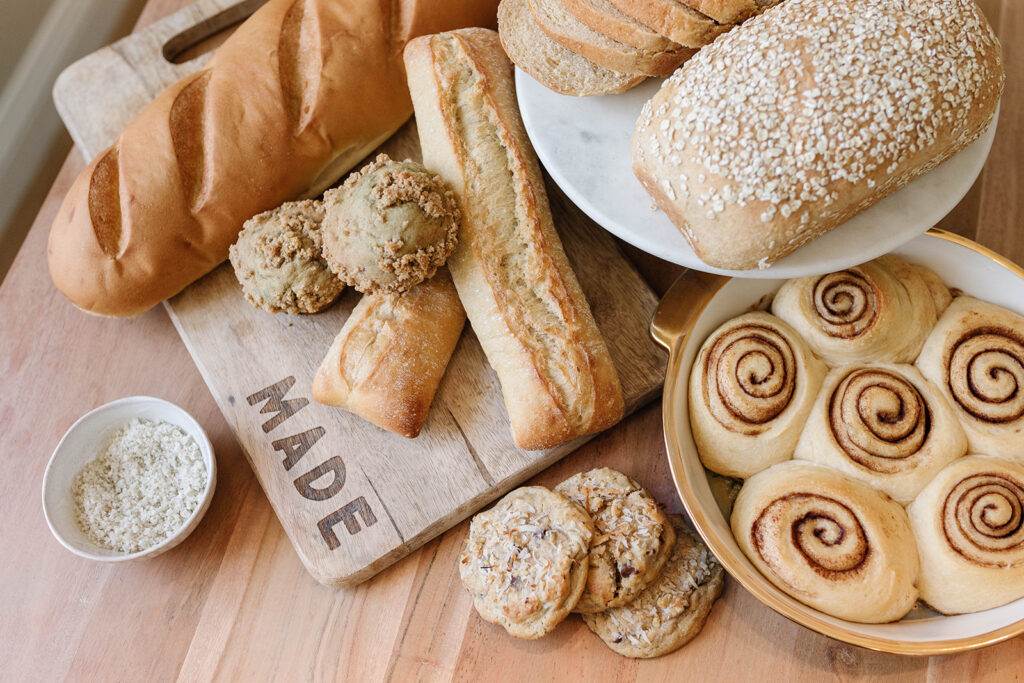
Active Dry Yeast vs. Instant Yeast That Bread Lady
Be sure to wear good oven mitts to prevent steam burns. Bake the bread until it's crusty and golden, about 35 to 40 minutes. Remove the loaves from the oven and cool on a rack before slicing. Store leftover bread, in a paper bag or loosely covered in plastic, for a day or so at room temperature; wrap and freeze for longer storage.

brand uniqa bul bread leaven
In baking, leavening is the air that causes bread, cakes, and other baked goodies to rise when they go in the oven. That gas is produced in different ways, depending on what type of leavening agent you use. This, in turn, varies according to what you're baking. But the simplest way to think of it is that the leavening agent produces the gas.
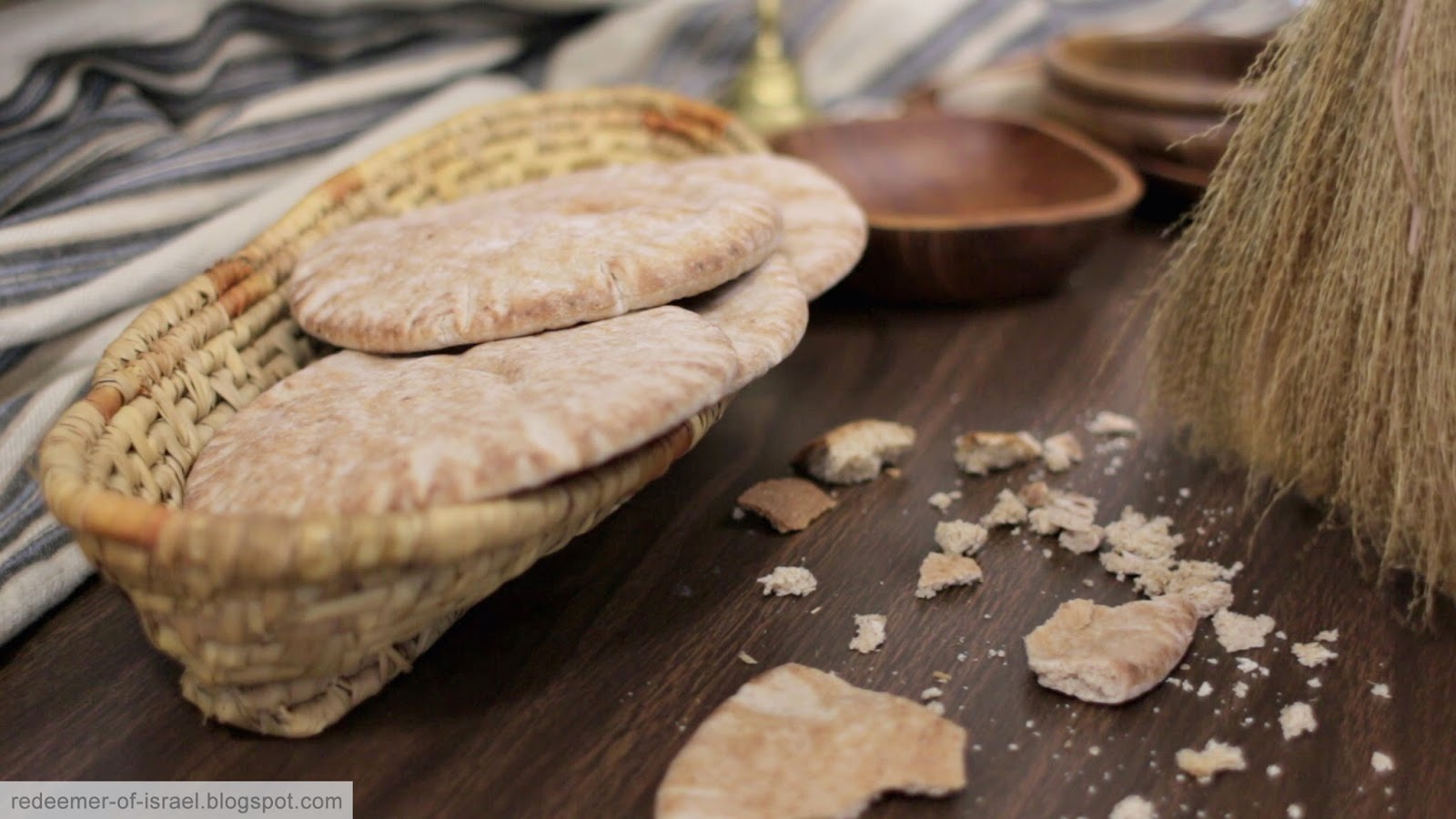
Redeemer of Israel Leaven and the Cleansing of the Temple
Day 2 (+24 h) In the morning, add 3 tbsp (1 oz./30 g) of flour and 2 tbsp (1 oz./30 g) of water to the previous day's mixture. Stir to combine. Cover again and leave to ferment in a warm place. That evening (+12 h), weigh out 1.75 oz. (50 g) of the mixture and throw out the remaining 1 oz. (30g).
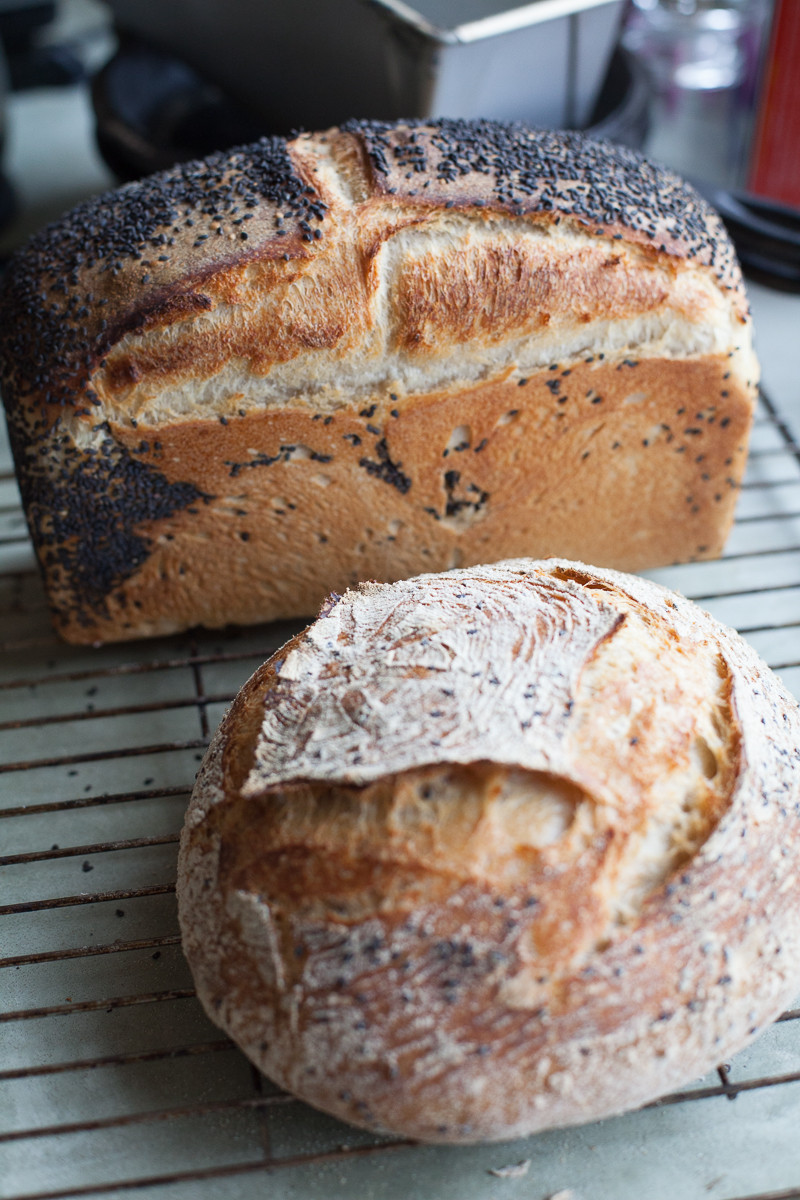
Naturally leavened bread baking class for you Village Dreaming Farm
What Is A Leaven? Leaven bread is a type of bread that is made using leaven, a substance that causes dough to rise. In simpler terms, leaven is an ingredient that makes bread fluffy and light rather than dense and flat. Leaven can be natural or artificial, but both types are used to achieve the same result - deliciously risen bread.

Fresh Homemade Bread. Crisp. Bread at Leaven. Unleavened Bread. Dietary
Leavened bread is a testament to humankind's ingenuity and love for the art of baking. What is leavened bread, its history, leavening agents, baking process, and cultural significance make it a fascinating topic for bread enthusiasts. Whether you're a baker or simply a bread lover, we hope this guide has deepened your understanding and.

How to Use Yeast & Leaven Make Bread YouTube
The world of preferments is vast, each with different flour and water ratios and names. A preferment is essentially a mixture of flour, water, and a leavening agent (in our case, a sourdough starter) left to ferment before mixing everything into a final dough. Preferments help bring flavor, aroma, and keeping qualities to your bread.

Redeemer of Israel Leaven and the Cleansing of the Temple
Fermentation is the traditional method of leavening bread. It involves using yeast, a microorganism that feeds on sugars in the dough. As yeast consumes sugars, it produces carbon dioxide gas as a byproduct. This gas gets trapped within the dough's gluten structure, causing it to expand and rise during baking.

Leaven Bread Active. Image & Photo (Free Trial) Bigstock
Written by MasterClass. Last updated: Mar 11, 2024 • 3 min read. Levain is an important ingredient when it comes to baking bread and other dough-based goods. In order to make dough rise, you need active yeast cultures to aid in fermentation. That is where levain comes in. Levain is an important ingredient when it comes to baking bread and.

brand uniqa bul bread leaven
Take a few tablespoons of starter from the fridge and let it reach room temperature for at least 3 hours; Add warm water (28 C) and flour to your starter to create the leaven. Let this mixture sit for around 8-12 hours at room temperature (or ambient temperature, hence the name) to ferment - this process is called the autolyze.
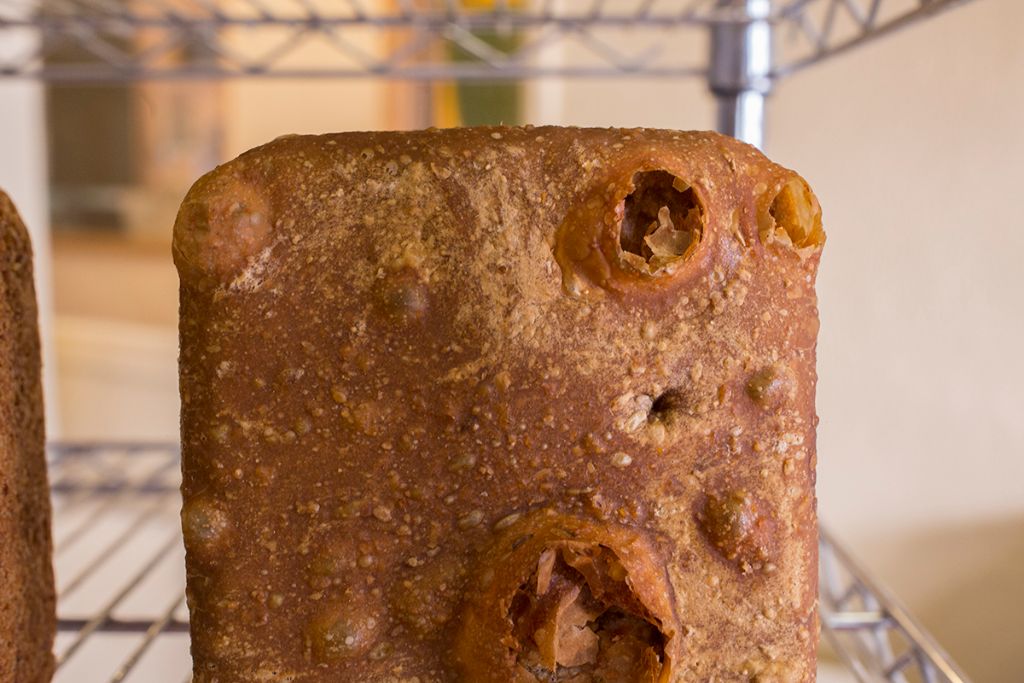
Wild Leaven Love Your Bread Live Taos
The Bible prohibits the eating of leaven during the festival of Passover (Exodus 12:15-20). The Hebrew word "hametz"is translated as leavened bread and refers to food prepared from five species of grain-wheat, barley, oats, spelt, and rye-that has been allowed to leaven. To these, Ashkenazic authorities add rice, millet, corn, and legumes, collectively known as kitniyot.
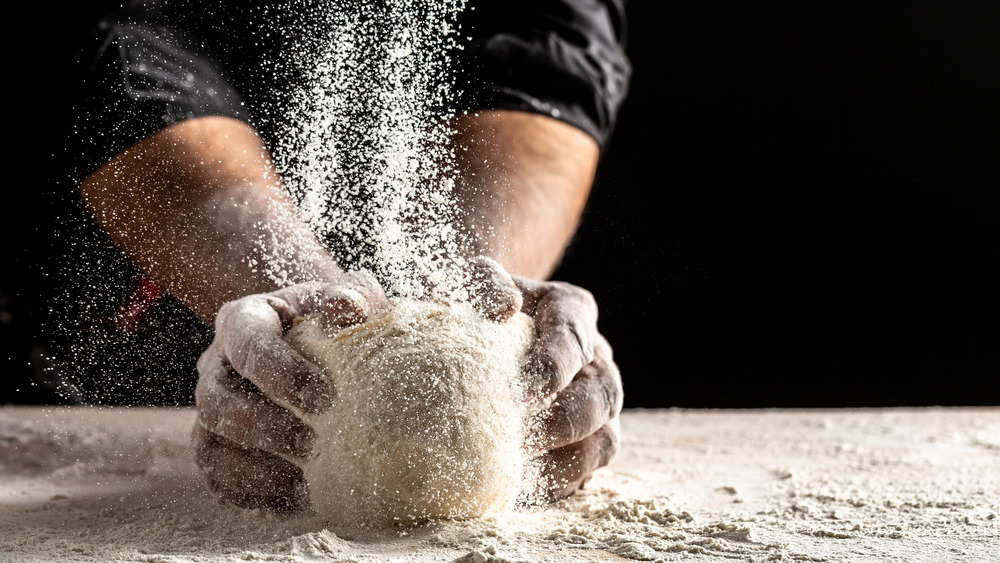
You've Been Kneading Bread All Wrong This Whole Time
Levain/Leavan - At a high level, a portion of the starter that is destined for the bread dough is often referred to as leaven or levain (French for leaven). For example, some people maintain their mother/seed/sourdough starter with 100% all-purpose flour, but then a day or two before mixing their bread, they fork off some of the starter and.

The best tips for baking sourdough bread at home (now that everyone's
190574. The difference between leavened and unleavened bread is found in the word itself - leaven. Leaven is what is placed in bread dough to make the bread rise. It is placed in the dough and spreads throughout the entire lump. We normally think of yeast as a leavening agent, but there are many such ingredients that can be used such as.